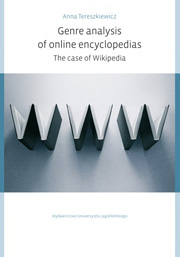Summary
The World Encyclopedia would be the mental background of every intelligent man in the world. It would be alive and growing and changing continually, under revision, extensions and replacement from the original thinkers in the world everywhere. Every university and research institution should be feeding it. Every fresh mind should be brought into contact with its standing editorial organization. And on the other hand, its contents would be the standard source of material for the instructional side of school and college work, for the verification of facts and the testing of statements, everywhere in the world.(…) It would hold the world together mentally.
Wholly new forms of encyclopedias will appear, ready-made with a mesh of associative trails running through them, ready to be dropped into the memex and there amplified.
The quotations above come from “World Encyclopedia”, by H.G. Wells (1938) and V. Bush's “As We May Think” (1991), respectively. In his work, Wells pointed out that the dynamism of the changes in the 20th century creates a need for innovative types of encyclopedias. The Wellsian project, the World Encyclopedia, was planned as a synthesis of knowledge in the form of a collection of extracts, essays and reference lists. Bush, in his essay, proposes the implementation of a memex, a new device for communication and information storage, which was to facilitate the transfer and retrieval of knowledge, and in that way contribute to the compilation of modern encyclopedic sources.
- Type
- Chapter
- Information
- Genre Analysis of Online EncyclopediasThe Case of Wikipedia, pp. 11 - 13Publisher: Jagiellonian University PressPrint publication year: 2010



